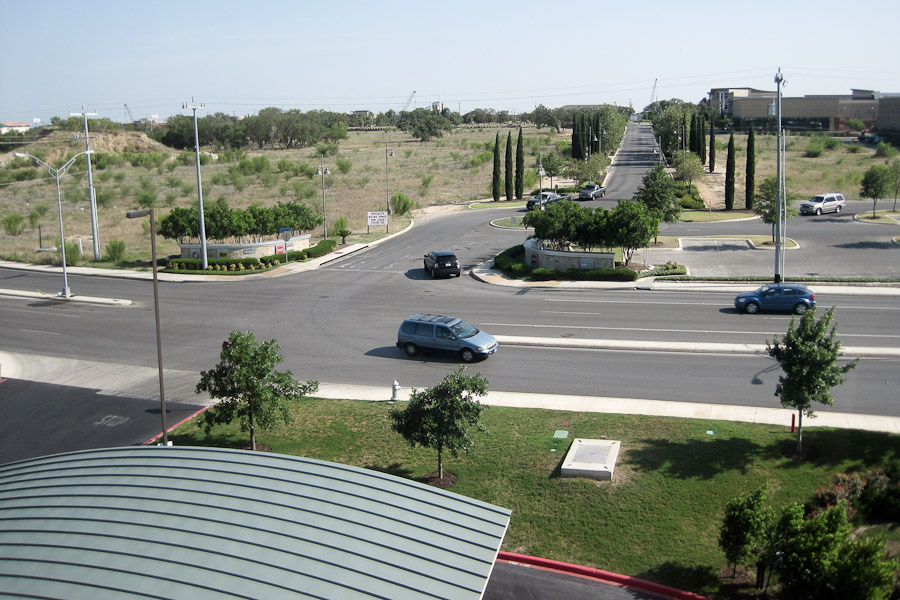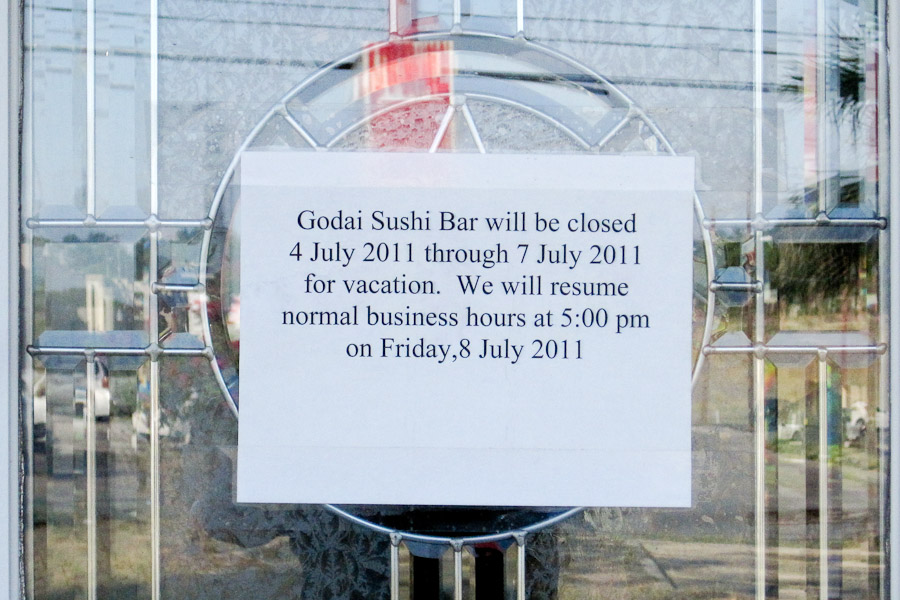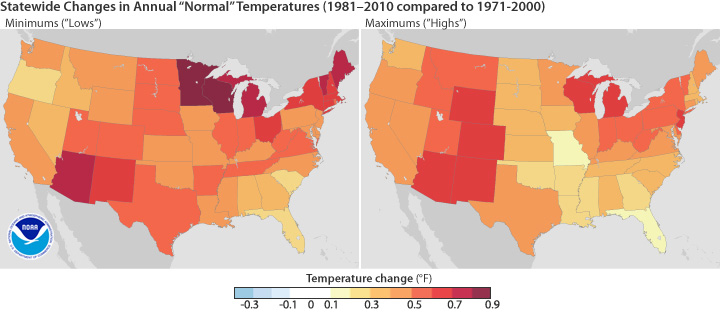The Roberto Clamente Bridge in Pittsburgh, after Saturday night's fireworks, from the Andy Warhol Bridge:

9 July 2011, ISO-6400, 1/4 sec. at f/5, here.
Pittsburgh, Pa., exactly 24 hours ago:

ISO-100, 1/250 at f/5.6, polarizing filter, here.
After almost almost a year hiatus, the 30-Park Geas resumed yesterday in Pittsburgh:

Not only did I see a Cubs 6-3 win and a surprise, game-ending double play, but also a .38 Special concert complete with fireworks:

(My theory, not shared by the people around me, was that the fireworks were to celebrate the Cubs win.)
More photos today and tomorrow.
When in Rome:

13 October 2007, Canon 20D at ISO-200, 1/400 at f/6.3, 76mm.
The Economist's Prospero blog piles on the Cubs after attending the Crosstown Classic last week:
Teams like the Cubs give people a safe space in which to lose. Fans get the benefits of commiseration without incurring any real costs. The predictable losers also allow other teams to win. So really the Sox fans should be grateful for the Cubs. Such losers may not be so lovable on scrutiny, but their ineptitude has an extra civic function: they take one for the team. They’re a sacrifice fly.
And on the Fourth of July, yet! Limey bastahd.
He may have a point, though.
Snapshot from the corner of Franklin and Randolph recently:

22 June 2011, Canon SD1200 at ISO-100, 1/160 at f/13, 14mm, here.
The Tower of Belem, outside Lisbon:

7 January 2001, Kodak DC-4800 at ISO-100, 1/90 at f/2.8, here.
I'm in Texas for a couple of days on business, on the outskirts of (but still technically within) San Antonio. It's not Chicago:

I did, however, find a sushi restaurant only a few kilometers[1] from the hotel that got great Yelp reviews. Only, I should have called first:

And I didn't write down any of the other listings that had acceptable reviews because, you know, I didn't.
I will now go find something to eat in the depressing strip mall across the street. I can walk a couple of blocks in
36°C heat. I think.
[1] See what I did there?
The National Oceanic and Atmospheric Administration released the 1981-2010 temperature normals this week, and guess what? They're warmer:

Normals serve as a 30 year baseline average of important climate variables that are used to understand average climate conditions at any location and serve as a consistent point of reference. The new normals update the 30-year averages of climatological variables, including average temperature and precipitation for more than 7,500 locations across the United States. This once-a-decade update will replace the current 1971–2000 normals.
In the continental United States, every state’s annual maximum and minimum temperature increased on average. “The climate of the 2000s is about 1.5 degree F warmer than the 1970s, so we would expect the updated 30-year normals to be warmer,” said Thomas R. Karl, L.H.D., NCDC director.
Like the myth of heliocentrism before it, the myth of anthropogenic climate change will stand forever disproven!
(Yet, it moves...)
Rolle, Switzerland:

17 June 1992, Kodachrome 64, Canon EOS Rebel, Tamron 35-210mm, exposure unrecorded, here (I think)